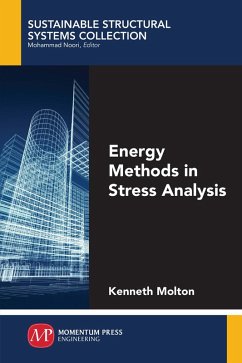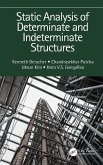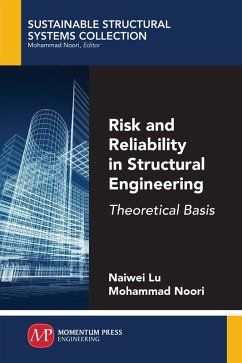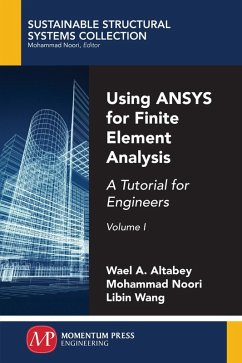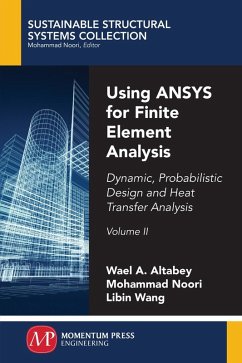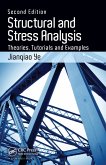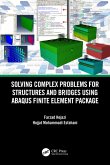This book builds the subject from a foundation that static equilibrium occurs when the rate of change of work done by the load is equal to the rate of change of strain energy in the structure,
Energy methods are a powerful tool for the stress analysis of loaded structures. This book builds the subject from a foundation that static equilibrium occurs when the rate of change of work done by the load is equal to the rate of change of strain energy in the structure. Advanced applications of the method are easily developed from this fundamental principle by partial differentiation of the appropriate terms.
The methods solve linear problems, statically indeterminate structures, non-linear problems, frames and the derivation of stiffness matrices used in finite element analysis. Critical buckling loads for struts, plates and panels are modelled by comparison of the strain energy stored in the unbuckled and buckled shapes. This method develops an interesting discussion on the theory of buckling of a long slender strut which is additional to those in traditional texts. Post buckling stiffness of plates and panels are modelled using assumed shapes for strain energy calculation. The presentation offers a clear reasoning leading to analysis possibilities not seen in traditional texts which espouse concepts of virtual work, minimum potential energy, complementary energy, and the unit load method.
Energy methods are a powerful tool for the stress analysis of loaded structures. This book builds the subject from a foundation that static equilibrium occurs when the rate of change of work done by the load is equal to the rate of change of strain energy in the structure. Advanced applications of the method are easily developed from this fundamental principle by partial differentiation of the appropriate terms.
The methods solve linear problems, statically indeterminate structures, non-linear problems, frames and the derivation of stiffness matrices used in finite element analysis. Critical buckling loads for struts, plates and panels are modelled by comparison of the strain energy stored in the unbuckled and buckled shapes. This method develops an interesting discussion on the theory of buckling of a long slender strut which is additional to those in traditional texts. Post buckling stiffness of plates and panels are modelled using assumed shapes for strain energy calculation. The presentation offers a clear reasoning leading to analysis possibilities not seen in traditional texts which espouse concepts of virtual work, minimum potential energy, complementary energy, and the unit load method.
Dieser Download kann aus rechtlichen Gründen nur mit Rechnungsadresse in A, D ausgeliefert werden.

